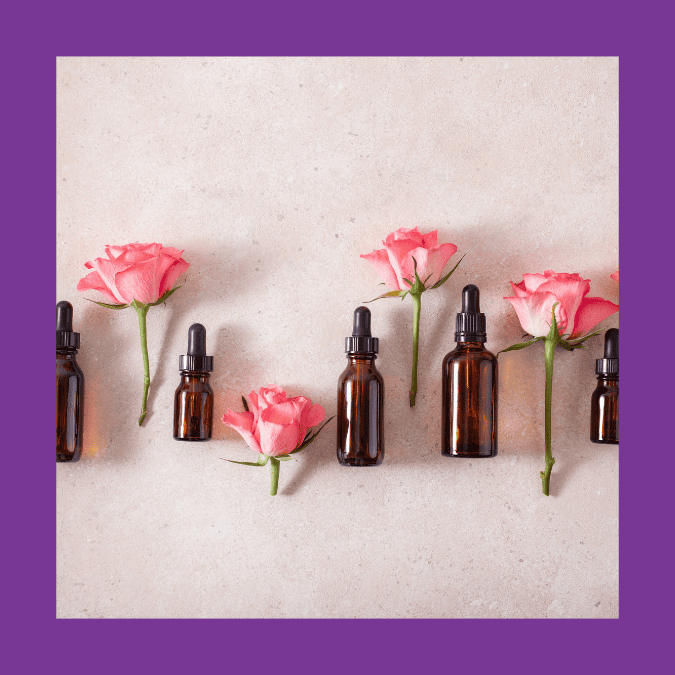
Essential oils can be a powerful addition to wellness routines, bringing benefits from relaxation to respiratory support. However, when it comes to using these concentrated plant extracts, there are a few common pitfalls that even the most enthusiastic users can fall into. In this post, we’ll walk you through the top five mistakes people make when using essential oils—and, most importantly, how to avoid them. Whether you’re new to essential oils or a seasoned user, these tips will help you get the most out of your essential oils safely and effectively.
1. Using Undiluted Oils Directly on Skin
Essential oils are highly concentrated, so applying them undiluted (or “neat”) directly on the skin is risky. It can cause irritation, burns, or even long-term sensitivity. For safe usage, dilute oils in a carrier oil like jojoba or sweet almond oil. A common rule of thumb for healthy adults is a 2% dilution: around 4 drops of essential oil per 10ml of carrier oils. This approach keeps the oils effective but reduces irritation risk.
2. Internal Use of Essential Oils Without Guidance
The idea that if something is natural, it’s safe to add to food or take orally, is a common misconception with essential oils. Many oils are not safe for ingestion, and consuming them can lead to toxicity, digestive irritation, development or aggravation of ulcers, or other health concerns. Internal use should only occur under supervision by a certified aromatherapist or healthcare professional knowledgeable about essential oils and aromatic medicine. Oftentimes, when needing to use essential oils internally, taking them orally is actually not the ideal way to use them. Many more safety considerations need to be taken into account for the internal use of essential oils. Please do not add essential oils to water for drinking, or use them as flavouring in your cooking.
3. Overusing Oils in Diffusers
When it comes to diffusing essential oils, just like when applying topically, less is often more. Overusing essential oils in a diffuser can create an overpowering scent that might cause headaches, nausea, or respiratory discomfort. Most experts recommend running a diffuser for 15-30 minutes at a time, up to a maximum of 60 minutes for healthy adults, then taking a break. This also preserves the therapeutic benefits of the oils without overwhelming your system. If children are in the room, you want to lower the time to age-appropriate timing. We usually want to help support the autonomic nervous system, not over stimulate it.
4. Ignoring Oil Properties and Contraindications
Not all essential oils are safe for everyone. Some, like peppermint and eucalyptus, should be avoided for young children, while oils like wintergreen pose risks to those with certain health conditions, like clotting disorders, or rosemary for anyone with a seizure disorder. It’s crucial to research each oil before use and consult reliable resources or a qualified aromatherapist to ensure it’s safe for your intended purpose. This helps prevent unintended adverse reactions.
5. Improper Storage
Essential oils are sensitive to heat, light, and air, which can cause them to oxidize and lose potency. Once an oil has been oxidized, exposure to these oils can increase the risk of irritation when used on the skin. Store your essential oils in a cool, dark place in tightly sealed, dark glass bottles to preserve their efficacy and shelf life. Proper storage also ensures you’re not inadvertently using degraded oils, which may have different chemical compositions. You can store them in a fridge for the best protection.
FAQs
Q: How to use citrus oils safely?
A: Certain essential oils, especially citrus-based ones like bergamot, lemon, grapefruit, and lime, can cause phototoxic reactions when applied to the skin and then exposed to UV rays. This can lead to severe burns or skin discoloration. It’s important to be aware of which oils are phototoxic and their maximum dilution to avoid reactions. Some essential oils can also be purchased as FCF oils, where the photosynthesizing compounds are not present.
Q: How long should I diffuse with babies in the house?
A: You want to avoid diffusing in the same room as babies, and only diffuse oils when needed. You don’t want to mask the smell of parents as parents aromas help with bonding. For young children, diffusing for 10-15 minutes if often more then enough to get the therapeutic benefits.


